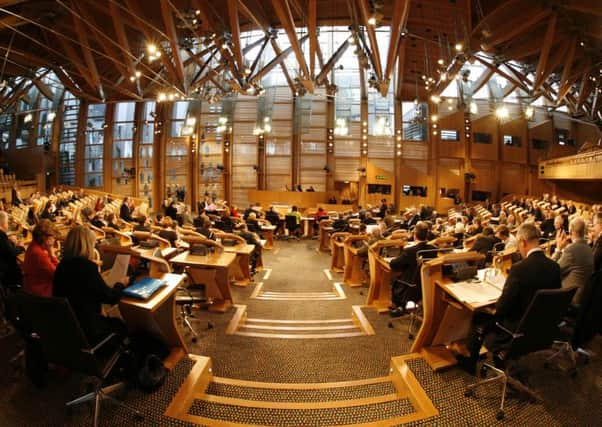Lynda Towers: Niche no longer for constitutional lawyers


The constitutional lawyer was a niche breed 20 years ago. They might usually be found working for government, north and south of the Border, or in academia. They wrote the odd article or book. Their work was referred to in university law faculty lectures but otherwise they did not impinge much on our consciousness.
Then came devolution in the late 1990s and we all had to learn about “functions” and “legislative competence” under the Scotland Act 1998. While we had heard of EU law and ECHR, most of us knew little more than what the acronyms stood for. There was a very fast learning curve for the constitutional lawyer and even more so for the rest of the legal profession. Now we even had a Scottish Parliament in Edinburgh where we could develop our own constitutional law.
Advertisement
Hide AdAdvertisement
Hide AdIn the early years of the new millennium, constitutional law developed at a relatively sedate pace. Lots of legislation was passed. A Labour/Lib Dem coalition governed the country. We had the odd case in the courts to guide us as to how the Parliament, the Devolution settlement and Scotland Act 1998 should work in law. There were relatively few changes to the Scotland Act and constitutional lawyers were lulled into a false sense of calm. Even the arrival of the minority SNP administration and the Axa Insurance and Imperial Tobacco cases did no more than hint at what was to come.
The election of the SNP majority administration meant an independence referendum was definitively on the table and for the constitutional lawyer it was as if all their Christmases had arrived at once. There was all sorts of legislation, including on the franchise, to consider and comment on. Out came the books and articles on referendums, on prerogative powers, on parliamentary sovereignty and legislative competence. The constitutional lawyer appeared on everyone’s invite list and their every word was analysed. There were constitutional experts on everything, admittedly not all of them lawyers, covering the UK constitution, foreign constitutional arrangements, the EU, finance and economics, defence, NATO and international maritime arrangements. What was even better for the debate was that the experts made their own assessments and regularly reached different views. It was an exciting, intellectually challenging time for constitutional lawyers.
On 18 September 2014 the referendum was over and, at least theoretically, the books, blogs and articles were metaphorically archived on legal bookshelves.
In 2015, it became clear we citizens were going to be given another referendum experience, this time focused on the EU. The campaigns were loud and passionate, if not always accurate. Terminology from the Scottish Independence Referendum started appearing. “Project fear” was alive and kicking and a new one of “Project Fantasy” emerged. However, for the constitutional lawyer this is probably our Christmases and birthdays all rolled into one.
The message for us all is that substantial constitutional change has been with us for almost 20 years. Yes, this may be the biggest challenge we have faced to date but accepting this is an evolving situation with few certainties at present, the best advice for lawyers and clients must be not to panic, take some thinking time, influence where we can and be ready to deal with what emerges. I am ready to step into the light again but I suspect, if truth be told, we are all constitutional lawyers now.
• Lynda Towers is director of public law at Morton Fraser